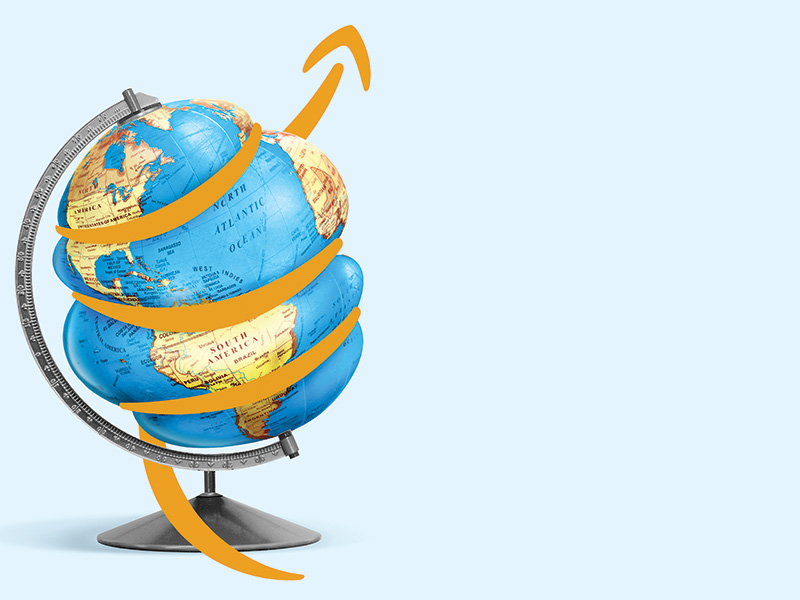- Mar 29, 2018
- 7,107
(@oldschool's note: This is a very long article that describes the issue in the contest of American laws, but it worth reading to clearly understand the grip Big Data has on all of us. I have excerpted parts of it.)
"Popular histories present the Boston Tea Party as a rebellion against taxes. Yet what the colonists objected to more than anything was the idea of an all-powerful corporate middleman regulating commerce. They viewed the 1773 protest in Boston Harbor as a victory for liberty and a blow against the British East India Company’s trade monopoly. That corporation owed its dominance not to any proprietary advantage but to an exclusive British government charter. The artificial nature of this power was made clear soon after the Congress of the new United States signed a peace treaty with Britain. Six weeks later, the American ship Empress of China sailed from New York, bound for Canton. When the ship returned, its traders sold tea and porcelain on the open market. Without the active backing of the British state, the East India Company could not stop the sale—let alone determine who sold what, or where and how they sold it, in America.
But around the middle of the nineteenth century, Americans began to develop technologies that could not be broken into component pieces. This was especially true of the railroad and the telegraph. These expensive and complex networks were built across vast areas of land and required large teams of people to operate. This made the earlier solution to monopolies—dissolution—impossible. If Americans planned to take full advantage of these technological advances, they would have to regulate the actions of the corporations that controlled them. Such corporations posed one overarching challenge: they charged some people more than others to get to market. They exploited their control over an essential service in order to extort money, and sometimes political favors. The system of 'discriminations made between individuals . . . is the most serious evil connected with our present methods of railroad management,” the Yale professor Arthur T. Hadley explained in 1885. “Differences are made which are sufficient to cripple all smaller competitors. . . and concentrate industry in a few hands.”
Americans found the answer to this problem in common law. For centuries, the owners of ferries, stagecoaches, and inns had been required to serve all customers for the same price and in the order in which they arrived. In the late nineteenth century, versions of such “common carrier” rules were applied to the new middleman corporations. Today we rightly celebrate the Sherman Antitrust Act of 1890, which gave Americans the power to break apart private corporations. But in many respects, the Interstate Commerce Act of 1887 was the more important document. This act was based on the understanding that monopoly networks like the railroad and the telegraph could be used to influence the actions of people who depend on them, and hence their power must be carefully restricted, in much the same way that we restrict the power of government. As Senator Sherman himself put it,
As a result, Amazon, Google, Facebook, and other platforms were free to develop business models that treated every seller and buyer—every citizen—differently. These corporations exploited this license to the fullest, and have used their power to reorganize entire realms of human activity. Amazon, Google, and Facebook match individuals to specific shoes and clothes, specific restaurants and hotels, specific movies and music, specific jobs and schools, specific drugs and hospitals, specific sexual partners, and even specific books, articles, speakers, and sources of news. These companies are the most powerful middlemen in history. Each guards the gate to innumerable sources of essential information, services, and products. Yet thus far no governmental entity in the United States has signaled any intention of limiting the license these corporations enjoy to serve only the customers they choose to, at whatever price they decide. This means that Jeff Bezos, Sergey Brin, Larry Page, and Mark Zuckerberg enjoy much the same power as God did in Babel. We live in the world they manufacture for us. Their vision for what we should do, where we should go, how we should think, and who we should be is now our vision, too. As their manipulation machines increasingly deliver different information to each member of the public, it becomes harder for people to engage in debate and have any chance at bringing these companies under control. ... "
... (an excerpt on Google)
"In 2018, an Irish technologist named Dylan Curran concluded: '... In the world of Amazon, Google, and Facebook, not only are we subject to the will of a few private companies, manipulated moment to moment by unseen forces that rule our commerce, track our movement, and record our every thought. Each of us must now suffer alone, with less and less ability to commiserate with others about our common problems. The power of the middleman has become so great as to make each of our problems unique, solely a matter between us and the master."
(read the entire article here)

 harpers.org
harpers.org
"Popular histories present the Boston Tea Party as a rebellion against taxes. Yet what the colonists objected to more than anything was the idea of an all-powerful corporate middleman regulating commerce. They viewed the 1773 protest in Boston Harbor as a victory for liberty and a blow against the British East India Company’s trade monopoly. That corporation owed its dominance not to any proprietary advantage but to an exclusive British government charter. The artificial nature of this power was made clear soon after the Congress of the new United States signed a peace treaty with Britain. Six weeks later, the American ship Empress of China sailed from New York, bound for Canton. When the ship returned, its traders sold tea and porcelain on the open market. Without the active backing of the British state, the East India Company could not stop the sale—let alone determine who sold what, or where and how they sold it, in America.
But around the middle of the nineteenth century, Americans began to develop technologies that could not be broken into component pieces. This was especially true of the railroad and the telegraph. These expensive and complex networks were built across vast areas of land and required large teams of people to operate. This made the earlier solution to monopolies—dissolution—impossible. If Americans planned to take full advantage of these technological advances, they would have to regulate the actions of the corporations that controlled them. Such corporations posed one overarching challenge: they charged some people more than others to get to market. They exploited their control over an essential service in order to extort money, and sometimes political favors. The system of 'discriminations made between individuals . . . is the most serious evil connected with our present methods of railroad management,” the Yale professor Arthur T. Hadley explained in 1885. “Differences are made which are sufficient to cripple all smaller competitors. . . and concentrate industry in a few hands.”
Americans found the answer to this problem in common law. For centuries, the owners of ferries, stagecoaches, and inns had been required to serve all customers for the same price and in the order in which they arrived. In the late nineteenth century, versions of such “common carrier” rules were applied to the new middleman corporations. Today we rightly celebrate the Sherman Antitrust Act of 1890, which gave Americans the power to break apart private corporations. But in many respects, the Interstate Commerce Act of 1887 was the more important document. This act was based on the understanding that monopoly networks like the railroad and the telegraph could be used to influence the actions of people who depend on them, and hence their power must be carefully restricted, in much the same way that we restrict the power of government. As Senator Sherman himself put it,
For a century and a half, Americans used common carrier policies to ensure the rule of law in activities that depended on privately held monopolies. These rules served as a pillar of American prosperity through much of the twentieth century. By neutralizing the power of all essential transport and communications systems, the regulations freed Americans to take full advantage of every important network technology introduced during these years, including telephones, water and electrical services, energy pipelines, and even large, logistics-powered retailers. Citizens did not have to worry that the men who controlled the technologies involved would exploit their middleman position to steal other people’s business or disrupt balances of power. In the 1970s and 1980s, Robert Bork, Richard Posner, and other neoliberal Chicago School legal scholars set out to overturn America’s antimonopoly regime, targeting the traditional prohibitions on discrimination that common carrier laws had established. Their scholarship later played a major role in the writing of Section 230 of the Communications Decency Act of 1996. In that bill, Congress simultaneously exempted internet platforms from any responsibility to police the content on their sites, and failed entirely to impose on them any requirement to provide equal and just service to all who depend on their networks.It is the right of every man to work, labor, and produce in any lawful vocation and to transport his production on equal terms and conditions and under like circumstances. This is industrial liberty, and lies at the foundation of the equality of all rights and privileges.
As a result, Amazon, Google, Facebook, and other platforms were free to develop business models that treated every seller and buyer—every citizen—differently. These corporations exploited this license to the fullest, and have used their power to reorganize entire realms of human activity. Amazon, Google, and Facebook match individuals to specific shoes and clothes, specific restaurants and hotels, specific movies and music, specific jobs and schools, specific drugs and hospitals, specific sexual partners, and even specific books, articles, speakers, and sources of news. These companies are the most powerful middlemen in history. Each guards the gate to innumerable sources of essential information, services, and products. Yet thus far no governmental entity in the United States has signaled any intention of limiting the license these corporations enjoy to serve only the customers they choose to, at whatever price they decide. This means that Jeff Bezos, Sergey Brin, Larry Page, and Mark Zuckerberg enjoy much the same power as God did in Babel. We live in the world they manufacture for us. Their vision for what we should do, where we should go, how we should think, and who we should be is now our vision, too. As their manipulation machines increasingly deliver different information to each member of the public, it becomes harder for people to engage in debate and have any chance at bringing these companies under control. ... "
... (an excerpt on Google)
"In 2018, an Irish technologist named Dylan Curran concluded: '... In the world of Amazon, Google, and Facebook, not only are we subject to the will of a few private companies, manipulated moment to moment by unseen forces that rule our commerce, track our movement, and record our every thought. Each of us must now suffer alone, with less and less ability to commiserate with others about our common problems. The power of the middleman has become so great as to make each of our problems unique, solely a matter between us and the master."
(read the entire article here)

The Big Tech Extortion Racket, by Barry C. Lynn
How Google, Amazon, and Facebook control our lives